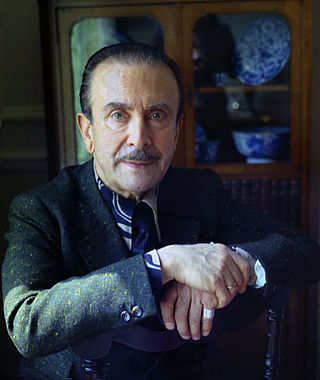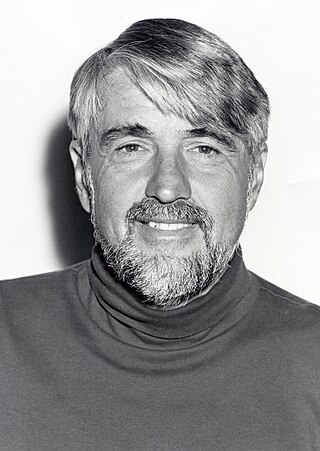
Muzio Filippo Vincenzo Francesco Saverio Clementi was an Italian-British composer, virtuoso pianist, pedagogue, conductor, music publisher, editor, and piano manufacturer, who was mostly active in England.

Artur Schnabel was an Austrian-American classical pianist, composer and pedagogue. Schnabel was known for his intellectual seriousness as a musician, avoiding pure technical bravura. Among the 20th century's most respected and important pianists, his playing displayed marked vitality, profundity and spirituality in the Austro-German classics, particularly the works of Beethoven and Schubert.

Claudio Arrau León was a Chilean and American pianist known for his interpretations of a vast repertoire spanning the baroque to 20th-century composers, especially Bach, Mozart, Beethoven, Schubert, Chopin, Schumann, Liszt and Brahms. He is widely considered one of the greatest pianists of the twentieth century.

The rondo is a musical form that contains a principal theme which alternates with one or more contrasting themes, generally called "episodes", but also occasionally referred to as "digressions" or "couplets". Some possible patterns include: ABACA, ABACAB, ABACBA, or ABACABA.

Frederic Anthony Rzewski was an American composer and pianist, considered to be one of the most important American composer-pianists of his time. From 1977 up to his eventual death, he lived mainly in Belgium. His major compositions, which often incorporate social and political themes, include the minimalist Coming Together and the variation set The People United Will Never Be Defeated!, which has been called "a modern classic".
George Rochberg was an American composer of contemporary classical music. Long a serial composer, Rochberg abandoned the practice following the death of his teenage son in 1964; he claimed this compositional technique had proved inadequate to express his grief and had found it empty of expressive intent. By the 1970s, Rochberg's use of tonal passages in his music had provoked controversy among critics and fellow composers. A professor at the University of Pennsylvania until 1983, Rochberg also served as chairman of its music department until 1968. He became the first Annenberg Professor of the Humanities in 1978.

Richard Lowe Teitelbaum was an American composer, keyboardist, and improvisor. A student of Allen Forte, Mel Powell, and Luigi Nono, he was known for his live electronic music and synthesizer performances. He was a pioneer of brain-wave music. He was also involved with world music and used Japanese, Indian, and western classical instruments and notation in both composition and improvisational settings.

Leon Fleisher was an American classical pianist, conductor and pedagogue. He was one of the most renowned pianists and pedagogues in the world. Music correspondent Elijah Ho called him "one of the most refined and transcendent musicians the United States has ever produced".

Jörg Wolfgang Demus was an Austrian classical pianist who appeared internationally and made many recordings. He was also a composer and a lecturer at music academies. In composition and playing, he focused on chamber music and lieder. He played with singers such as Elisabeth Schwarzkopf and Dietrich Fischer-Dieskau, as a piano duo with Paul Badura-Skoda, and with string players such as Josef Suk and Antonio Janigro. Demus was instrumental in bringing the historic fortepiano to concert podiums. He was a member of the Legion of Honour, among many awards. He is regarded as one of the leading Austrian pianists of the immediate post-World War II era.
Willi Apel was a German-American musicologist and noted author of a number of books devoted to music. Among his most important publications are the 1944 edition of The Harvard Dictionary of Music and French Secular Music of the Late Fourteenth Century.

Sandro Ivo Bartoli is an Italian pianist.
A solo concerto is a musical form which features a single solo instrument with the melody line, accompanied by an orchestra. Traditionally, there are three movements in a solo concerto, consisting of a fast section, a slow and lyrical section, and then another fast section. However, there are many examples of concertos that do not conform to this plan.
James Adler is an American composer and pianist. Adler began his piano studies at age 10 with Elsie K. Brett. His teachers include Rose Willits, Mollie Margolies and Seymour Lipkin. He has coached with Rudolph Ganz, Ivan Moravec, Olga Barabini and Konrad Wolff.

Gabriel Anton Walter was a builder of pianos. The Grove Dictionary of Music and Musicians describes him as "the most famous Viennese piano maker of his time". His pianos were played by many composers including Haydn, Mozart and a very young Beethoven.
Elizabeth Vercoe is an American musician, music educator and composer.

Giorgi Latso is a Georgian-American concert pianist, film composer, arranger, adjudicator, improviser and Doctor of Musical Arts. Latso has won several international piano competitions and awards. He is best known for his interpretations of Chopin and Debussy. He is a founder & CEO of Amadeus International Foundation. His concerts have been broadcast on radio and television in Europe, Asia, and the Americas.
John Robilette is an American classical pianist.
Richard Aaker Trythall was an American and Italian composer and pianist of contemporary classical music.

Larry Thomas Bell is an American composer, pianist and music professor.

Paul Reale was an American composer, pianist, and Professor of Music at the University of California, Los Angeles.













